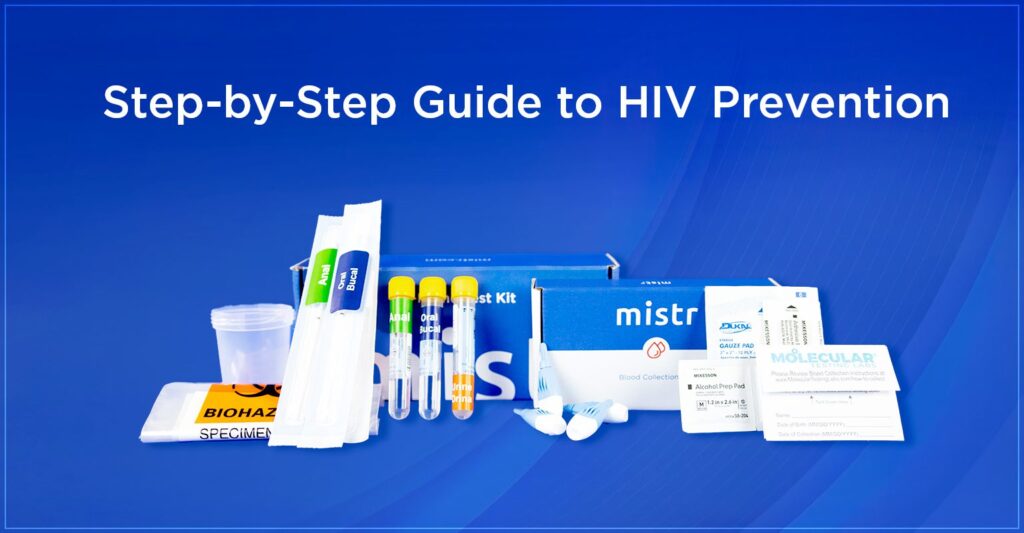HIV, or Human Immunodeficiency Virus, continues to be a significant global health issue, but advancements in prevention and treatment have made it possible to reduce the risk of transmission dramatically. Understanding and utilizing effective HIV prevention methods is crucial in protecting yourself and others from this virus. This comprehensive guide explores various strategies, including PrEP and PEP, condom use, safe practices, and the importance of regular testing and screening. Whether you are looking to protect yourself or support a loved one, this guide will provide valuable insights into HIV prevention.
Overview of HIV Prevention
HIV prevention is essential for maintaining public health and individual well-being. With over 1.2 million people living with HIV in the United States alone, and many more worldwide, preventing new infections is a top priority. HIV prevention strategies not only protect individuals from acquiring the virus but also help in reducing the overall prevalence of HIV in communities. By implementing effective prevention methods, we can move closer to the goal of ending the HIV epidemic.
PrEP and PEP: Key HIV Prevention Methods
PrEP (Pre-Exposure Prophylaxis)
PrEP, or Pre-Exposure Prophylaxis, is a once-daily pill regimen that is highly effective at preventing HIV. Studies have shown that PrEP can reduce the risk of HIV infection by up to 99% when taken consistently. PrEP is recommended for individuals who are at high risk of HIV exposure, such as those with an HIV-positive partner, people who engage in unprotected sex, and those who use injectable drugs.
MISTR offers a seamless process for accessing PrEP, allowing you to consult securely online with licensed physicians and complete all required lab testing at home. With insurance coverage or through patient assistance programs, MISTR ensures that your online consultation, labs, STI testing, and medication are free. This hassle-free approach makes it easier than ever to incorporate PrEP into your HIV prevention strategy.
PEP (Post-Exposure Prophylaxis)
PEP, or Post-Exposure Prophylaxis, is an emergency treatment for HIV prevention that must be started within 72 hours after potential exposure to the virus. PEP involves taking antiretroviral medications for 28 days to prevent the virus from taking hold in the body. It is crucial for individuals who may have been exposed to HIV through unprotected sex, needle-sharing, or other high-risk activities.
If you believe you have been exposed to HIV, seek medical attention immediately to discuss the possibility of starting PEP. Timely intervention is critical for PEP to be effective, making it an essential component of HIV prevention in emergencies.
Condom Use and Safe Practices
Importance of Condoms
Condoms are one of the most effective and widely used methods of HIV prevention. When used correctly and consistently, condoms can significantly reduce the risk of HIV transmission during vaginal, anal, and oral sex. Condoms act as a barrier, preventing the exchange of bodily fluids that can carry HIV.
Types of Condoms
There are various types of condoms available, including male condoms, female condoms, and dental dams. Male condoms are worn over the penis, while female condoms are inserted into the vagina. Dental dams are used during oral sex to prevent direct contact with bodily fluids. Each type of condom offers protection against HIV and other sexually transmitted infections (STIs), making them a versatile option for safer sex practices.
Safe Sexual Practices
In addition to using condoms, other safe sexual practices can further reduce the risk of HIV transmission. These include:
- Mutual Monogamy: Engaging in a mutually monogamous relationship with a partner who has tested negative for HIV.
- Reducing the Number of Sexual Partners: Limiting the number of sexual partners can decrease the likelihood of exposure to HIV.
- Regular STI Testing: Regular testing for STIs can help detect and treat infections early, reducing the risk of HIV transmission.
- Communication and Consent: Open communication with sexual partners about HIV status, testing, and prevention methods is crucial for mutual safety.
Regular Testing and Screening
The Role of Regular HIV Testing in Prevention
Regular HIV testing is a cornerstone of effective HIV prevention. Knowing your HIV status allows you to take appropriate measures to protect yourself and others. Early detection of HIV can lead to timely treatment, reducing the risk of transmission and improving health outcomes.
MISTR provides an easy and convenient way to get tested for HIV. With at-home testing kits and online consultations, you can complete the necessary lab tests without visiting a doctor’s office. Regular testing is particularly important for individuals at higher risk of HIV exposure, such as those with multiple sexual partners, people who inject drugs, and individuals in relationships with HIV-positive partners.
Benefits of Regular Testing
- Early Detection and Treatment: Early detection of HIV through regular testing allows for prompt treatment, which can significantly improve health outcomes and reduce the risk of transmission.
- Informed Decision-Making: Knowing your HIV status enables you to make informed decisions about your sexual health and relationships.
- Reducing Stigma: Regular testing and open discussions about HIV can help reduce the stigma associated with the virus, encouraging more people to get tested and seek treatment.
- Community Health: Widespread testing and early detection contribute to better community health by reducing the overall prevalence of HIV.
Conclusion
HIV prevention is a multifaceted approach that involves the use of PrEP and PEP, consistent condom use, safe sexual practices, and regular testing and screening. By understanding and implementing these methods, individuals can significantly reduce their risk of acquiring HIV and contribute to the overall goal of ending the HIV epidemic. MISTR makes it easier than ever to access essential HIV prevention services, offering a streamlined process for PrEP, at-home testing, and free delivery of medications.
Call to Action
Ready to take control of your sexual health with effective HIV prevention methods? Visit MISTR today to learn more about our services and get started with your confidential online consultation and at-home testing kit. Join us in the fight against HIV and take the first step towards a healthier future.
